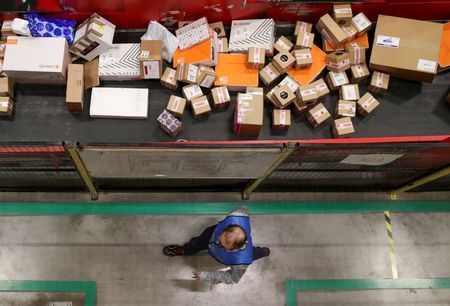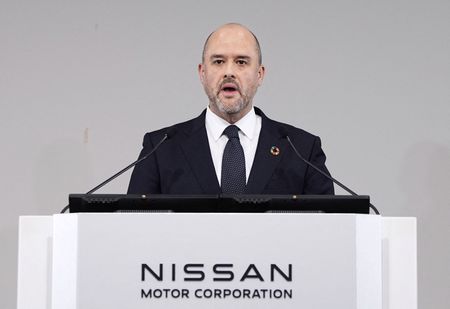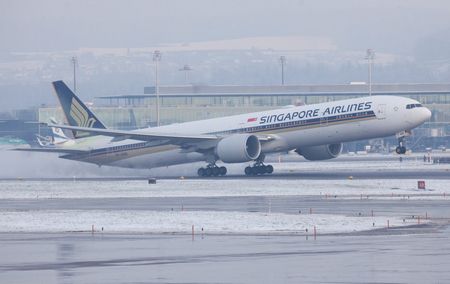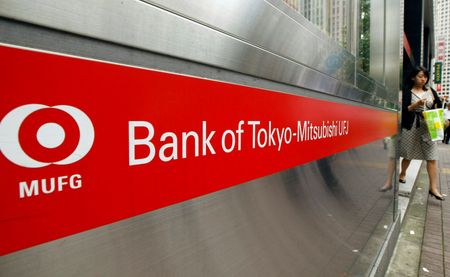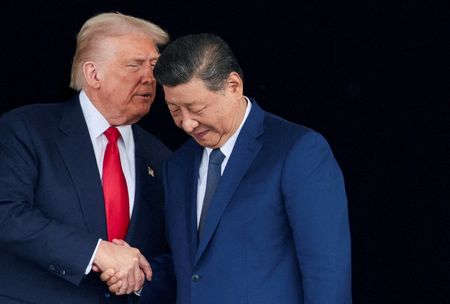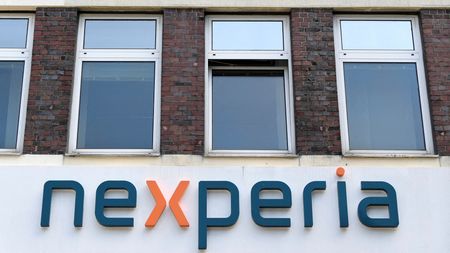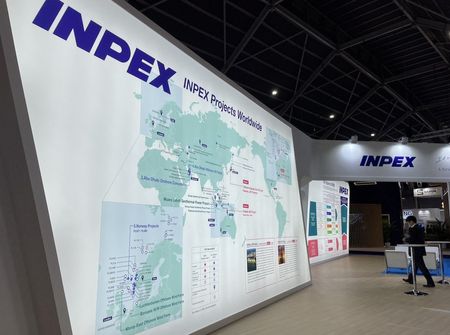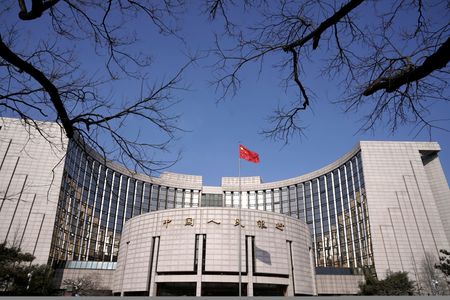By Philip Blenkinsop and Helen Reid
BRUSSELS (Reuters) -Brussels wants to accelerate the imposition of customs duties on low-value parcels entering the European Union in a bid to crack down on cheap Chinese e-commerce imports, Trade Commissioner Maros Sefcovic has said, as concern grows over Chinese goods being dumped in Europe.
In a letter to EU finance ministers meeting in Brussels on Thursday, Sefcovic proposed that the “de minimis” exemption from duties for goods ordered online below 150 euros ($175) be removed in the first quarter of 2026, two years earlier than planned.
The move would hit online platforms such as Shein, Temu, AliExpress and Amazon Haul, which send products from Chinese factories directly to shoppers, offering rock-bottom prices thanks to the customs waiver.
“European industries, particularly retailers, have repeatedly underlined that this distortion of competition be removed without delay,” Sefcovic wrote.
In 2023, the European Commission proposed removing the exemption, but only from 2028, when a broader overhaul of the EU’s customs regime is due to take effect.
MOVE TO HIT SHEIN, TEMU
Shein declined to comment, while Temu, AliExpress, and Amazon did not immediately respond to requests for comment.
Shein is facing legal proceedings in France over the sale of child-like sex dolls on its platform.
The number of low-value ecommerce packages arriving in the bloc doubled last year to 4.6 billion, over 90% of them from China, and the Commission, the bloc’s executive arm, is facing pressure from EU companies to stem that flow more quickly.
“We’ve already received more parcels than in the entire year of 2024, and Black Friday and Christmas are just around the corner,” EU lawmaker Dirk Gotink, chief negotiator on the new customs legislation, said in a statement welcoming the move to scrap the customs waiver faster.
The United States has scrapped its own “de minimis” policy that allowed duty-free entry to parcels worth less than $800, leading to concerns that cheap Chinese imports would divert more to Europe.
There is also added urgency as individual EU countries have moved to introduce national handling fees.
Romania has proposed a 25 lei ($5.73) fee on low-value packages, while Italy is working on a tax by the end of the year to protect its fashion industry, its industry minister said on Wednesday.
RETAILERS WARN AGAINST ASSORTMENT OF NATIONAL FEES
European retailers and wholesalers’ lobby group EuroCommerce have warned that an assortment of different national fees risks undermining the EU single market. The Commission has proposed a 2 euro fee, but it is not clear when it would be imposed.
Sefcovic said the current timeline of abolishing the de minimis threshold in mid-2028 was “incompatible with the urgency of the situation”.
EU finance ministers are expected to agree a common position on Thursday, setting up negotiations with the European Parliament, which will also need to back new legislation.
Dutch Finance Minister Eelco Heinen told reporters it was time to “get a grip” on cheap Chinese parcels flooding the European market.
Greek Finance Minister Kyriakos Pierrakakis said in a statement that his country backs the immediate imposition of tariffs on small parcels.
($1 = 0.8575 euros; 4.3595 lei)
(Reporting by Jan Strupczewski, Inti Landaurno in Brussels, Helen Reid in London, Angeliki Koutatou in Athens, writing by Philip Blenkinsop, Editing by Richard Lough, Alexandra Hudson, Conor Humphries and Ed Osmond)

